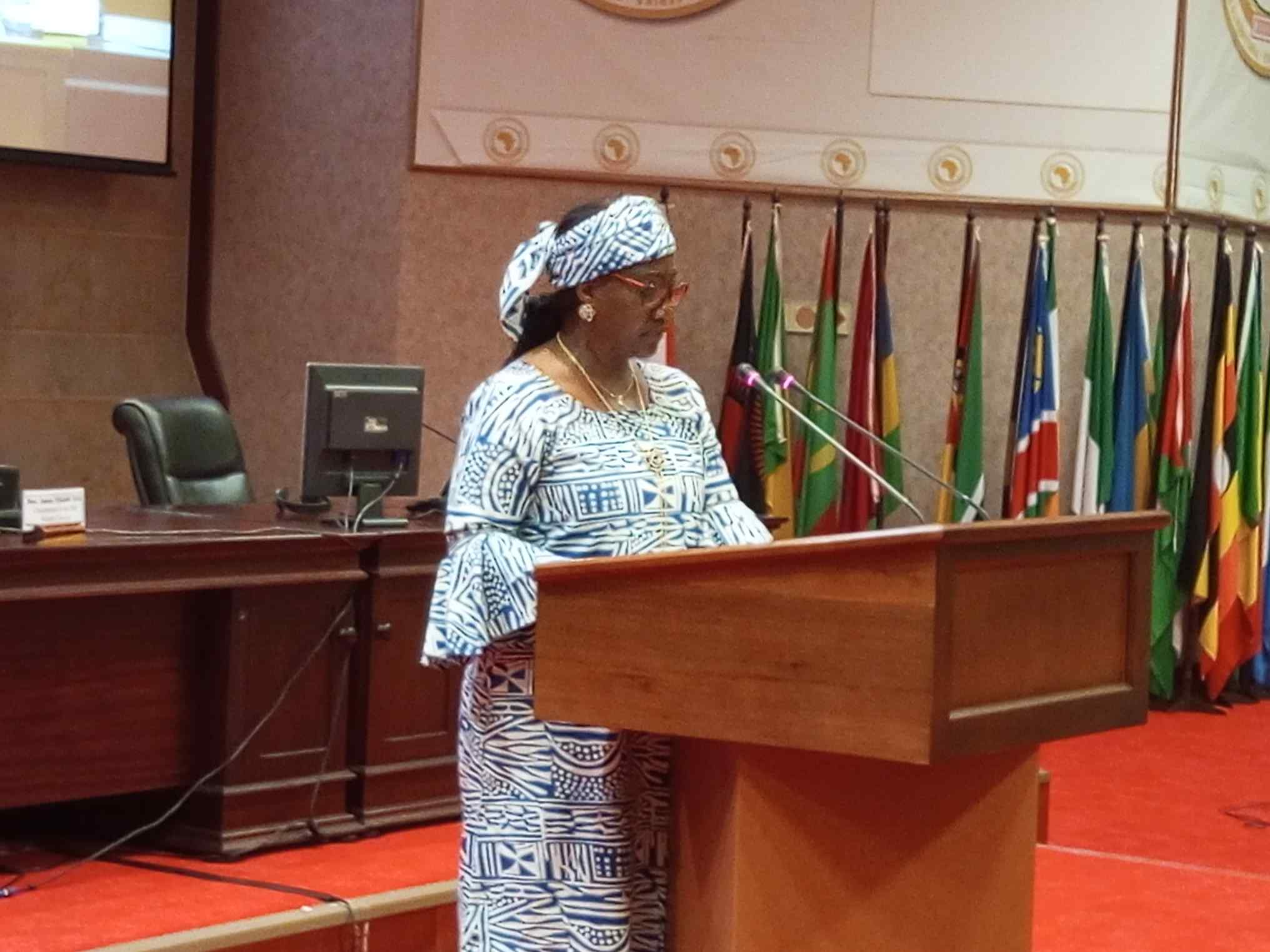|
Getting your Trinity Audio player ready…
|
The African Union Development Agency (AUDA-NEPAD) has pledged to give its support to the Pan-African Parliament (PAP) in advocating women’s empowerment and gender equity and equality.
In a statement delivered on her behalf by Mrs. Estherine Fotabong, the Director of Programme Innovation and Planning, Madam Nardos Bekele-Thomas, the Chief Executive Officer of NEPAD during the official opening of the 13th Pan-African Parliament conference on women’s rights under the theme: “Women empowerment and inclusion in Governance”, called on stakeholders to bring to the fore of all activities and issues that advance gender equality and equity.
“Women’s empowerment means her ability to participate equally in social, economic, and political spheres; their access to and control over productive resources, access to decent work, control over their own time; an increased voice, a seat at the table, and meaningful participation in economic decision-making processes at all levels, from the household to parliaments, to international institutions.
“Indeed, women are the backbone of our African societies, when empowered, they foster economic growth and sustainable development. Without their equal and effective participation in all spheres of life, the African Union vision of agenda 2063 will not be attained,” she said.
As far as gender equality is concerned, she said the trends in Africa are quite discouraging: the gender gap (or the number of years needed to achieve gender equality) is 134,7 years on this continent compared to 52,1 years for Western Europe or 68,9 years for Latin America. Violence against women and girls is at the highest with 44% of women and girls having been a victim of violence in Subsaharan Africa, and the rate of child marriage is also very high in 15 African countries (out of 20 countries in the world plagued by this issue). There are also more women in the informal sector or unemployed, and women are still the ones performing unpaid care work.
A gloomy picture regards gender equality and equity is apparent on the continent.
Across the economic sectors, African women play a vital role, yet lack conductive and supportive systems. In both centralised and decentralised governance systems, women tend to lack a political voice.
In agriculture, 65 to 70% of smallholder farmers on the continent are women, yet relative to their male counterparts, they have limited access to productive assets, such as lands or services, or finance gender inequalities are a root cause of lower food production, lesser income and higher levels of poverty and food insecurity.
Their chances to participate in collective action, eg, as members of agricultural cooperatives or water user associations remain critically low. Gender inequalities are the root cause of lower food production, lesser income, and higher levels of poverty and food insecurity.
And these negative trends have only been exacerbated by the COVID-19 pandemic.
“These facts are well known, but when I read the theme of our conference “Women empowerment and inclusion in Governance, my heart was filled with joy. Why joy? Because these two sub-themes are the two faces of the same coin. There cannot be true women empowerment without women’s inclusion in all spheres of governance and power, and inclusion in Governance inexorably bring empowerment to the group of women in leadership positions, but also to the women that they can reach out to, influence, and help at the grassroots level.
“As you probably know, the institution that I am representing today and have been a part of for several years has undergone various changes and in-depth transformations. From the NEPAD Secretariat to the NEPAD Planning and Coordinating Agency and now the African Union Development Agency (AUDA-NEPAD), the structure and delivery model of the institution are no longer the same. But throughout the institutional changes journey, one thing always remained: the will of our Senior Leadership to ensure that programmes are dedicated to empowering women, relieving them of their burdens, transforming their livelihoods but also by changing the harmful cultural and social norms that they are facing daily. and shifting mindsets,” she said.
Chief Fortune Charumbira, the President of the Pan African Parliament, who is also the President of the Chiefs’ Council of Zimbabwe and a proponent of gender equality at a global level, in his solidarity remarks at the conference, said it is now time to do away with rhetoric and concentrate on real women empowerment issues.
“Talking of women’s empowerment and gender equality, we have to ask ourselves: What are the real issues? What is inside the pot of the empowerment mantra? We have heard partners from UNFPA, and UNWomen here talking about this issue and it has been a subject long before I joined Pan African Parliament.
“Politicians win elections by using the word empowerment and it is worst for youths. In actual fact, the word is illusive and a mirage. This conference should look at the ingredients of women’s empowerment. The language to describe it is rich. Gender mainstreaming is talked about everywhere. Stakeholders should avoid political niceties and people should be accountable for the words they use. Is there real gender mainstreaming in national budgets? Some of the best contributions to PAP come from women.
“This means most women have great capacities in disciplines like engineering and mathematics but they should be included in governance. There is a need to appoint more women in government to reduce the number of corrupt people in positions of authority. Women should be put in critical positions of distributing resources to reduce crime. Wherever there is responsibility for resources, let’s give it to women,” Chief Charumbira said.
Speakers from UN Women, UNFPA, and the PAP Women’s Caucus were in unison to the effect that stakeholders must put in place mechanisms to ensure that women are integrally involved and targeted in the design and implementation of economic empowerment and development actions so that then velce in expressed and heard. There is a general consensus that African women must have a seat at the governing table.
